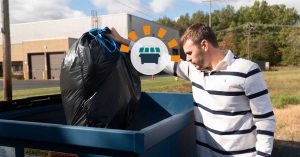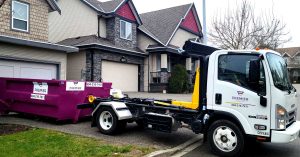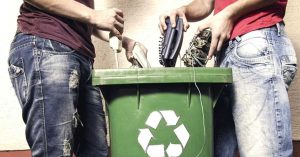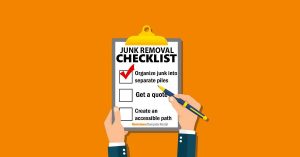Responsible Waste Disposal in Vancouver
Some of us may not know much about garbage other than the idea that you throw it out once a week. However, many people are unaware that waste is rapidly becoming one of the world’s most vital industries.
The main reason for this is that the garbage sector is not a big market, which means that there are only a few companies that provide a good recycling system. And the only road to a zero-waste future is to recycle.
Importance of Waste Management
Trash management is important because it decreases the impact of waste on the environment, health, and other factors. It can also assist in the reuse or recycling of materials such as paper, cans, glass, and so on. Waste management in Vancouver includes the disposal of solid, liquid, gaseous, or toxic material, among other things.
When considering trash management, numerous factors must be considered, including disposal options, recycling methods, waste avoidance and reduction measures, and waste transportation. Waste management entails the treatment of both solid and liquid waste. During the treatment, it also provides a choice of methods for recycling non-trash materials.
Responsible Waste Disposal in Vancouver
The first step in disposing of clothing, furniture, electronics, or other household things is to establish whether they are still useable. If they are, instead of throwing them out, consider donating them to a local charity or resale store. For objects that are beyond repair, use the recommendations below or call the professionals at Premier Site Services.
Recognize Wastes
The University provides waste management services that are safe, effective, and efficient for nonhazardous solid waste, recyclable trash, and hazardous waste. It is the responsibility of the University community to determine the type of waste produced and to use the appropriate University management system.
Assess Waste
To establish how trash should be treated, the University community must assess its waste’s physical, chemical, and biological qualities.
Waste could be-
- Material that is recyclable (e.g., paper, soda cans)
- Organic waste that is compostable (e.g. food, animal bedding, biodegradable plastics)
- Solid waste that isn’t dangerous
- Hazardous radioactive waste: waste that contains or has been contaminated with a radioactive isotope.
- Hazardous biological waste is defined as waste that contains or is contaminated with an infectious or potentially infectious agent, a biological toxin, animal carcasses, genetically modified organisms, recombinant DNA, or other potentially infectious agents.
- Hazardous chemical waste includes waste chemicals, chemical products (cleaning agents, paint, motor oil, and pharmaceuticals), products containing chemicals (fluorescent lamps, thermometers), and materials contaminated with chemicals (contaminated soil or rags)
- Other Regulated Materials: asbestos, car batteries, contaminated soil, and construction debris
Waste Management
After wastes have been discovered and evaluated, the University community must manage them in accordance with the University of Minnesota waste management guidelines. These waste management guidelines were created to ensure that the University complies with all applicable rules and regulations while also promoting a safe and healthy workplace.
The 3R Rule of Waste Disposal
Reduce
We may reduce the garbage we produce by making individual efforts. For example, materials must be purchased from the market only when absolutely essential.
Reuse
We can reuse the same thing for a variety of uses. For example, we can utilize plastic jars of jams, pickles, oil, and so on to store salt, spices, sugar, and so on.
Envelopes can be made from old invitation cards.
Recycle
We can restructure glass, plastic, metal, and paper things into usable materials. This is a recycling process. As an example,
To manufacture new paper or cardboard, we can recycle old newspapers, magazines, books, and notebooks.
Plastic that has been broken or abandoned can be melted and remoulded into other valuable materials.
Top 10 Waste Disposal Guidelines
- Remove food scraps from the kitchen on a daily basis, or more frequently if necessary.
- Set up a regular waste collection. Most restaurants demand waste collection at least twice each week.
- Garbage cans should not be allowed to overflow. Transfer excess garbage to other bins.
- Clean and hose off garbage cans on a regular basis.
- For garbage cans, always utilize a rubbish liner. This is an excellent approach to keep the rubbish container as clean as possible and to prevent hazardous bacteria from growing on the inside of the unit itself.
- When not in use, keep all garbage containers’ lids tightly closed.
- To dispose of hazardous materials such as broken glass, use proper containers. If you are unsure how to dispose of hazardous materials, consult with your supervisor or manager.
- Never move food or ice in garbage cans.
- Refrigerate food leftovers in warm areas to prevent bacteria from developing to unsafe levels quickly, but always use a separate refrigerator to one that holds food intended for human consumption.
- Finally, no exceptions: always wash your hands after handling rubbish and garbage containers!






